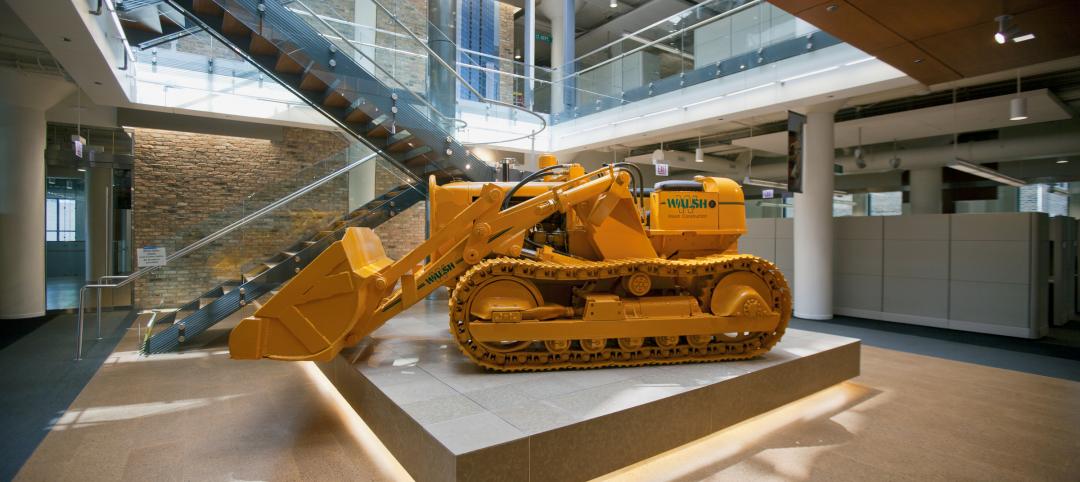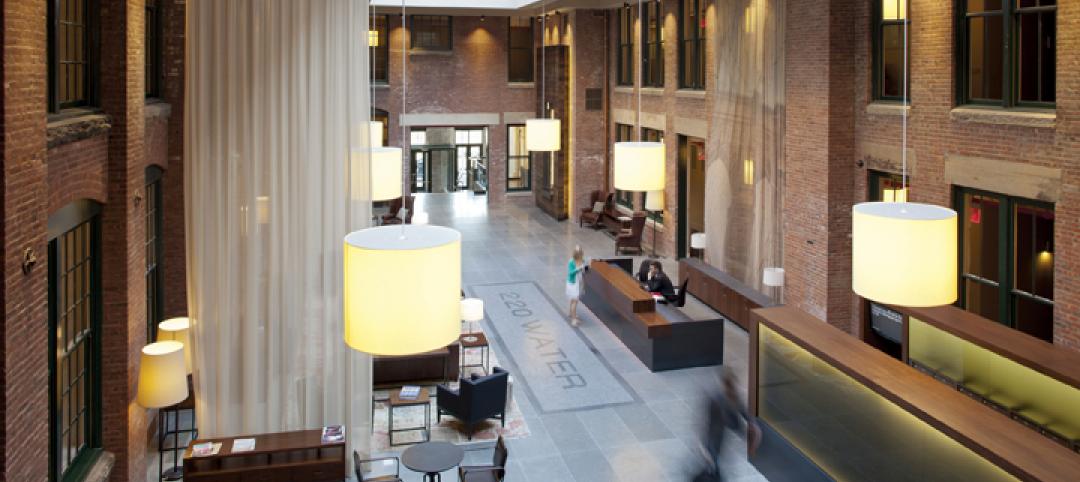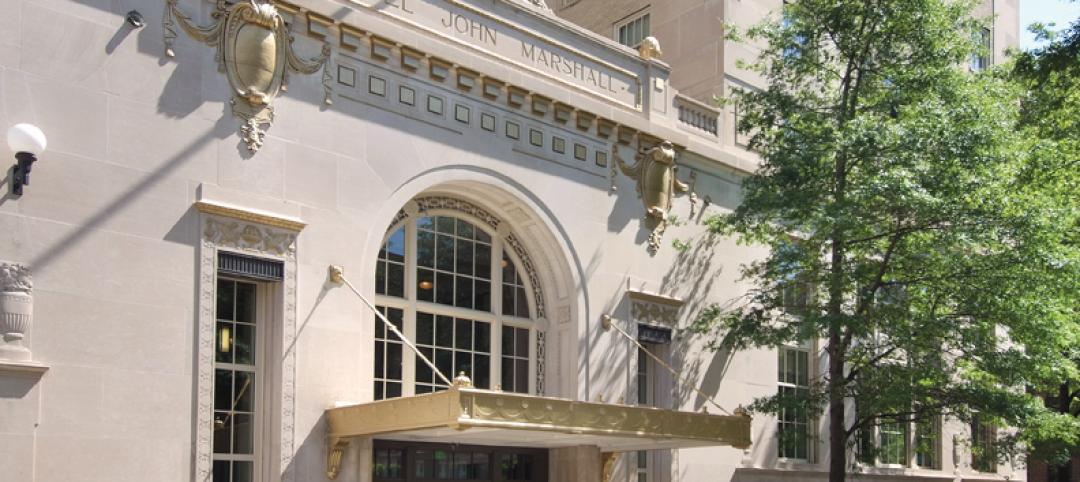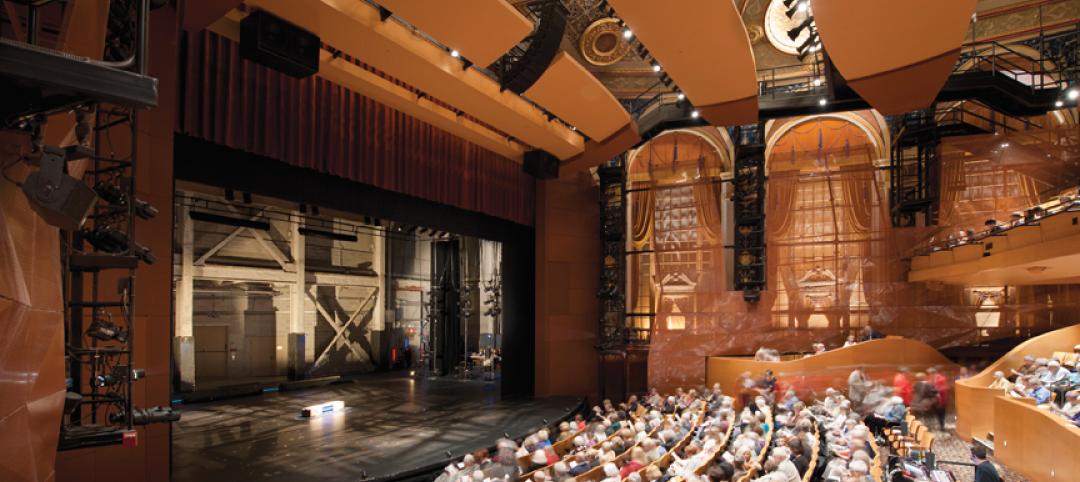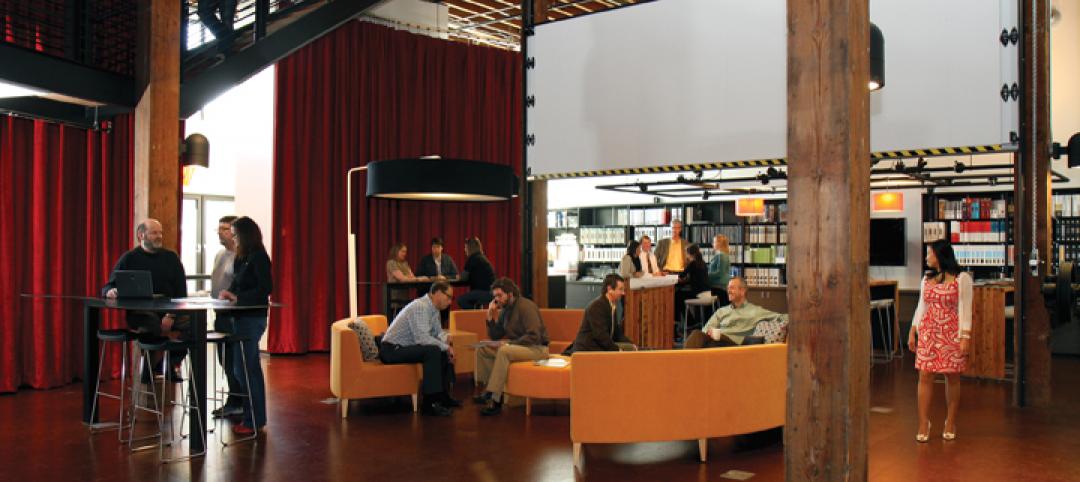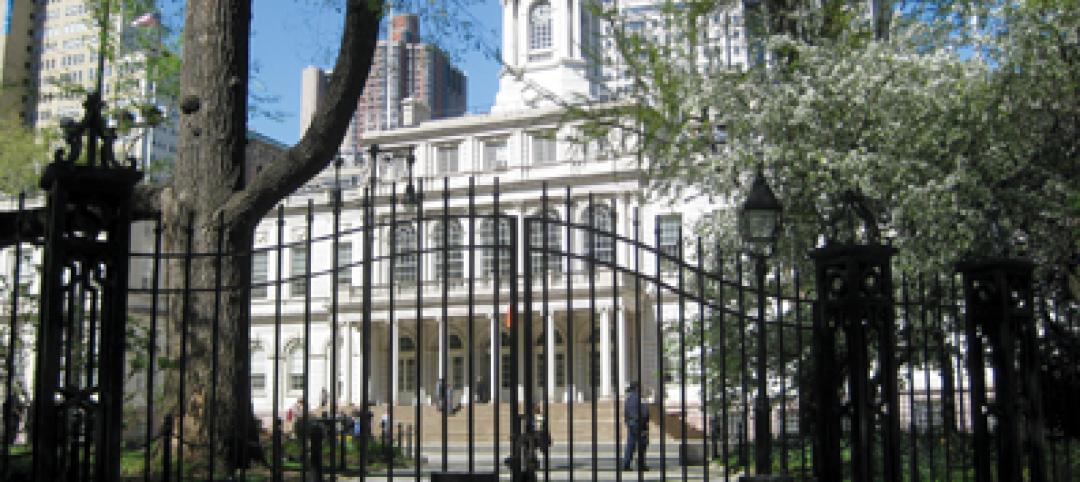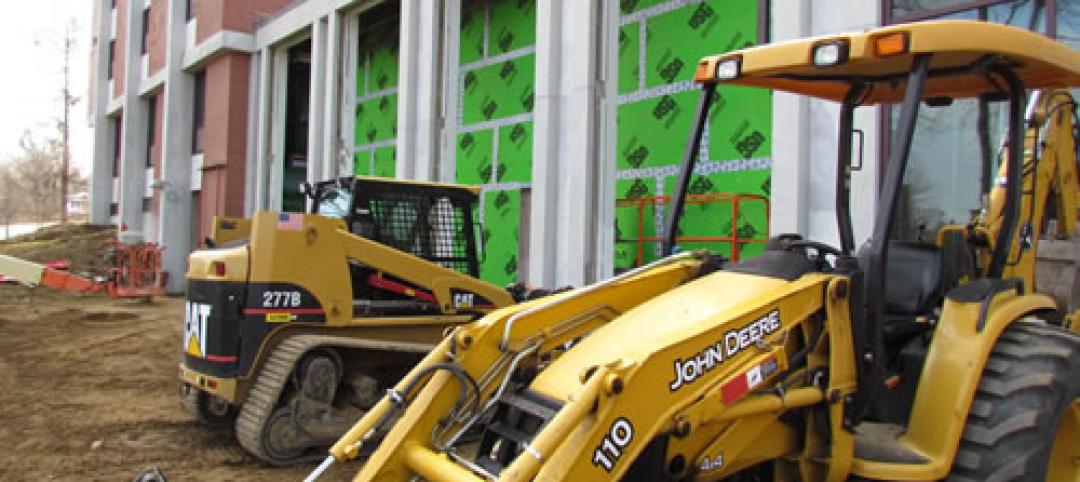Ameresco, a Massachusetts-based cleantech integrator and renewable energy owner and operator, has been working with the City of Boulder, Colo., on the company’s first sustainable deconstruction project, a demolition of the municipality’s former Boulder Community Health Hospital, which had been closed since April 2019.
Boulder has set a target to divert 85 percent of the city’s waste away from landfills by 2025. The former hospital’s deconstructed building materials, and specifically its structural steel, will be used to construct a new fire station and other projects within the city. The firehouse, to be located at 30th and Valmont in Boulder, is scheduled to open in mid-2024. During an early deconstruction phase, the hospital’s pumps, motors, doors, and fixtures, as well as other materials, were auctioned rather than dumped into landfills.
The 250,000-sf hospital’s demolition occurred in two phases, says Rob Sevier, Ameresco’s Senior Account Executive in Denver: the interior demo began in 2019, was slowed because of COVID, and was completed last year. The exterior demo—which includes removing the hospital’s concrete floors, steel, and exteriors—required new permits before it was started last March. Sevier says the deconstruction should be completed sometime this fall.
“This deconstruction project is an important foundational example of innovative sustainability for the communities where we live and work,” said Louis Maltezos, Ameresco’s Executive Vice President, in a prepared statement. Based in Chicago, Maltezos oversees the company’s activities in the central U.S. and in Canada.
The cost of the demolition, and how much of that cost is expected to be recouped by reusing or reselling materials and equipment from the deconstruction, were not available at presstime, according to an Ameresco spokesperson.
Mandate calls for dramatic reuse
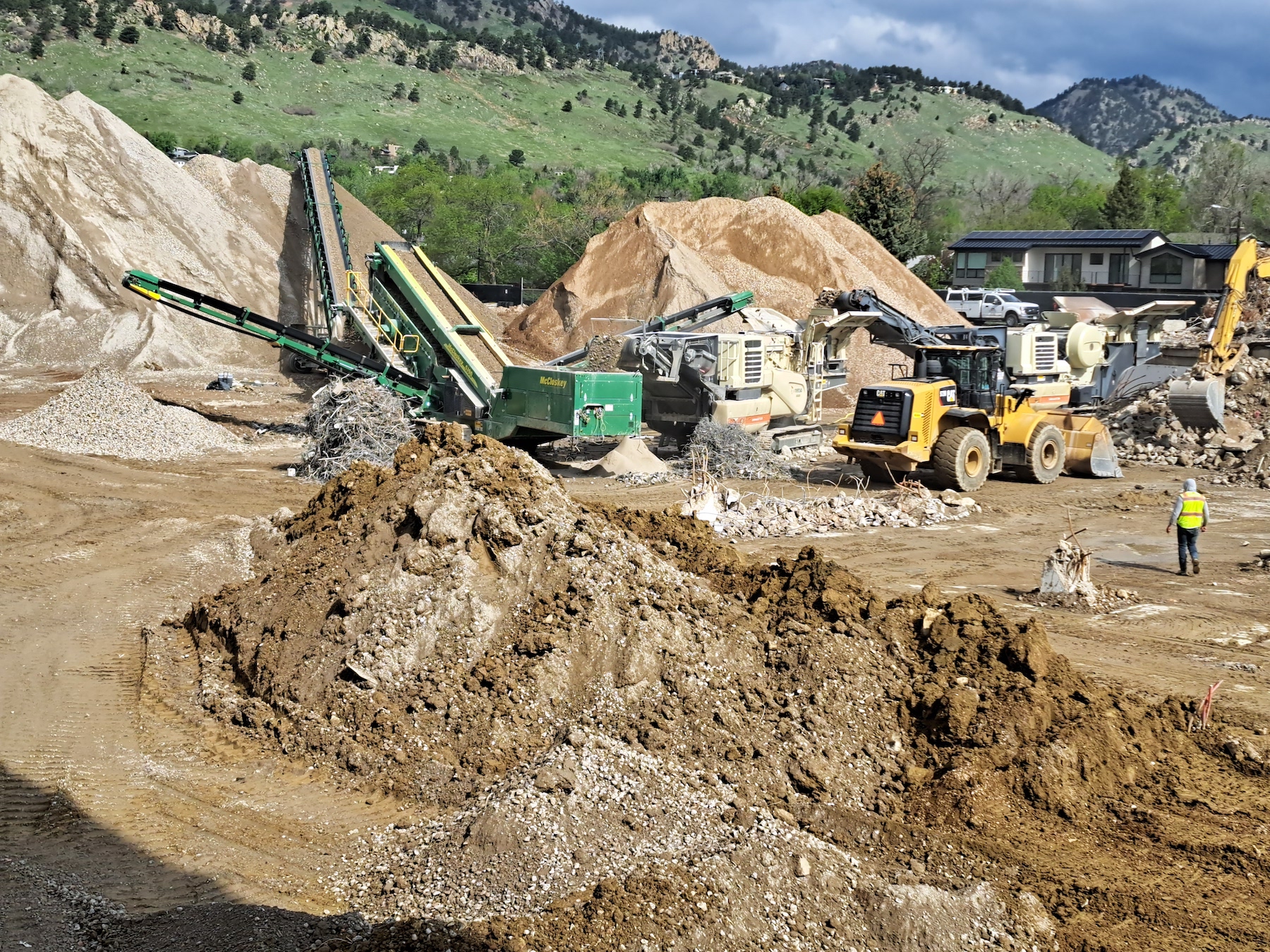
In July 2020, Boulder passed a deconstruction ordinance that covers both residential and commercial properties and requires that at least 75 percent by weight of building materials generated from deconstruction must be recycled, reused or go for organics management. Demolition permits now also require a refundable deconstruction deposit of $1 per sf of the structure, with a $1,500 minimum.
Concerning the hospital demo project, Mike White, who works for Ameresco in Boulder, told Aspen Public Radio that “this project is all about reusing, and that’s the key word, reuse versus recycle.”
He said the building’s mortar, brick and concrete are getting crushed into construction grade, compacted, and reused to fill the hole left by the hospital demo. (The site is being redeveloped for affordable housing.) Right now, steel removed from the hospital is being stored onsite, but Sevier says Ameresco and the city will need to find a warehouse once the housing construction gets underway. “It’s also my understanding that Boulder wants to use this steel for other projects,” he says.
The hospital deconstruction contributes to the city’s Circular Boulder program that keeps materials out of landfills and in use as much as possible. “This growing area of work moves beyond recycling and composting to focus on preventing waste and pollution in the first place. It explores innovative ways to curb Boulder’s collective consumption through reuse and repair.”
Along with its waste reduction goals, Boulder is also striving for carbon neutrality by 2035.
Sevier says that reusing the hospital’s steel required having a structural engineer sign off on the materials’ integrity. There was also an extensive permitting process, and safety plans that included asbestos remediation. But that effort was worth it, he says, because “when we can reuse something, we’re also avoiding the impact of generating something new.”
Ameresco isn’t actively looking for other sustainable deconstruction opportunities. The company has had a longstanding business relationship with the City of Boulder, which Sevier points out is more environmentally progressive than most other metros. But the company’s M.O., says its director of marketing and public relations Rhea Hickok, “is to do what makes sense for our customers.” In the future, that is likely to mean “how sustainability fits in,” she says.
Related Stories
| Oct 5, 2012
2012 Reconstruction Award Bronze Winner: Walsh Group Training and Conference Center, Chicago, Ill.
With its Building Team partners—architect Solomon Cordwell Buenz, structural engineer CS Associates, and M/E engineer McGuire Engineers—Walsh Construction, acting as its own contractor, turned the former automobile showroom and paperboard package facility into a 93,000-sf showcase of sustainable design and construction.
| Oct 5, 2012
2012 Reconstruction Award Silver Winner: 220 Water Street, Brooklyn, N.Y.
The recent rehabilitation of 220 Water Street transforms it from a vacant manufacturing facility to a 134-unit luxury apartment building in Brooklyn’s DUMBO neighborhood.
| Oct 5, 2012
2012 Reconstruction Award Silver Winner: Residences at the John Marshall, Richmond, Va.
In April 2010, the Building Team of Rule Joy Trammell + Rubio, Stanley D. Lindsey & Associates, Leppard Johnson & Associates, and Choate Interior Construction restored the 16-story, 310,537-sf building into the Residences at the John Marshall, a new mixed-use facility offering apartments, street-level retail, a catering kitchen, and two restored ballrooms.
| Oct 4, 2012
2012 Reconstruction Awards Silver Winner: Allen Theatre at PlayhouseSquare, Cleveland, Ohio
The $30 million project resulted in three new theatres in the existing 81,500-sf space and a 44,000-sf contiguous addition: the Allen Theatre, the Second Stage, and the Helen Rosenfeld Lewis Bialosky Lab Theatre.
| Oct 4, 2012
2012 Reconstruction Awards Gold Winner: Wake Forest Biotech Place, Winston-Salem, N.C.
Reconstruction centered on Building 91.1, a historic (1937) five-story former machine shop, with its distinctive façade of glass blocks, many of which were damaged. The Building Team repointed, relocated, or replaced 65,869 glass blocks.
| Oct 4, 2012
2012 Reconstruction Awards Gold Winner: Rice Fergus Miller Office & Studio, Bremerton, Wash.
Rice Fergus Miller bought a vacant and derelict Sears Auto and converted the 30,000 gsf space into the most energy-efficient commercial building in the Pacific Northwest on a construction budget of around $100/sf.
| Oct 4, 2012
2012 Reconstruction Awards Platinum Winner: City Hall, New York, N.Y.
New York's City Hall last received a major renovation nearly a century ago. Four years ago, a Building Team led by construction manager Hill International took on the monumental task of restoring City Hall for another couple of hundred years of active service.
| Oct 4, 2012
BD+C's 29th Annual Reconstruction Awards
Presenting 11 projects that represent the best efforts of distinguished Building Teams in historic preservation, adaptive reuse, and renovation and addition projects.
| Sep 24, 2012
Reed Construction completes Lafarge headquarters in Chicago
Reed Construction was contracted to complete the full third floor build-out which included the construction of new open area work space, private offices, four conference rooms with videoconferencing capabilities and an executive conference boardroom.
| Jul 25, 2012
KBE Building renovates UConn dining hall
Construction for McMahon Dining Hall will be completed in September 2012.


